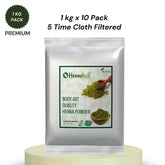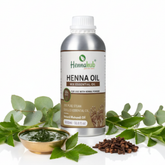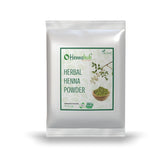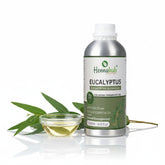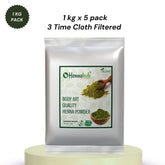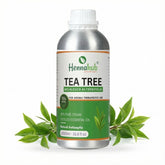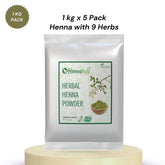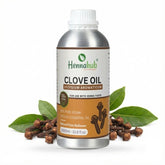Exploring the Benefits of Clove Oil in Henna Art
Exploring the Benefits of Clove Oil in Henna Art
Exploring the Benefits of Clove Oil in Henna Art
Introduction
Welcome to the vibrant world of henna art! Whether you're a seasoned henna artist or a curious beginner, the use of clove oil in henna mixtures has garnered attention for enhancing the beauty and durability of henna tattoos. Clove oil, derived from the buds of the clove tree, is celebrated not only for its aromatic properties but also for its ability to intensify the stain of henna, giving it a richer, darker hue. This blog explores the multitude of benefits that clove oil brings to henna art, ensuring your body art stands out with stunning clarity and longevity. Join us as we delve into the reasons why adding just a few drops of clove oil can transform your henna application into a masterpiece.
Benefits of Clove Oil in Henna Art
Enhanced Color
Clove oil is celebrated for its ability to amplify the richness and depth of henna tattoos. When added to henna paste, clove oil helps in intensifying the dye release, yielding a darker and more vibrant stain. This is particularly beneficial for henna artists seeking to create bold, intricate designs that stand out. The natural components within clove oil, particularly eugenol, interact with the henna plant’s lawsone molecules, enhancing the stain’s color quality. This interaction not only improves the visual appeal of the tattoo but also delights clients who prefer a more pronounced and eye-catching result.

Prolonged Longevity
In addition to enhancing color, clove oil plays a crucial role in extending the life of a henna tattoo. Typically, a henna tattoo might last anywhere from one to three weeks, but the incorporation of clove oil can help maintain the tattoo's vibrancy for a longer duration. The oil serves as a natural barrier that protects the stain from fading too quickly, effectively sealing in the color. This prolonged longevity is especially advantageous for those wearing henna designs for special occasions such as weddings or festivals, where the beauty of the henna is expected to last through long days of celebration.
Ways to Incorporate Clove Oil in Henna Designs
 Image courtesy: Pexels
Image courtesy: Pexels
Mixing Clove Oil with Henna Paste
One of the most straightforward methods to incorporate clove oil into henna art is by mixing it directly with the henna paste. To achieve optimal results, henna artists should add a few drops of clove oil to their henna mixture as it is being prepared. This not only ensures an even distribution of the oil but also allows the artist to control the intensity of the color and its longevity. It is important to use high-quality, pure clove oil to avoid any skin irritation and to maximize the benefits of the mixture.
Diluting Clove Oil for Varied Shades
For henna artists who wish to experiment with different shades and intensities of color, diluting clove oil offers a versatile solution. By adjusting the concentration of clove oil in the henna paste, artists can create a range of shades from subtle naturals to deep, rich tones. This technique involves mixing clove oil with a carrier oil like coconut or jojoba oil before adding it to the henna. This not only modifies the intensity of the color but also helps in controlling the viscosity of the paste, making it easier to apply intricate designs.
Using Clove Oil in Aftercare
Apart from its use in the preparation of henna paste, clove oil is also beneficial in aftercare. Once the henna design has been applied and dried, applying a light layer of clove oil can help set the design and enhance its longevity. The oil moisturizes the skin and forms a protective layer that reduces the likelihood of the tattoo cracking and fading. Moreover, the soothing properties of clove oil can also provide relief from the slight itching that sometimes accompanies the drying process of henna tattoos.
By integrating clove oil into both the preparation and aftercare of henna designs, artists can maximize the beauty, depth, and durability of their body art.
Tips for Choosing Quality Clove Oil for Henna Art

Image courtesy: Pexels
Choosing the right clove oil can significantly enhance the richness and longevity of your henna designs. Here are several tips to help you select the best quality clove oil for your henna art.
Checking for Purity
The purity of clove oil is essential for achieving vibrant and long-lasting henna colors. Pure clove oil contains eugenol, a compound that improves henna’s staining capabilities. To check for purity:
- Look for clove oil that lists "eugenol" as a primary component on the label.
- The oil should be clear to yellowish in color, and should not contain any sediment or cloudiness.
- Opt for steam-distilled clove oil, which ensures that the oil retains its natural properties without chemical contaminants.
Opting for Organic Options
Using organic clove oil can further enhance the safety and quality of your henna mixture. Organic oils are produced without the use of synthetic pesticides and fertilizers, ensuring that the oil remains as natural and uncontaminated as possible. Key benefits of using organic clove oil include:
- Reduced risk of skin irritations or allergic reactions.
- Assurance of non-GMO ingredients.
- Often, organic clove oil comes with certifications that can be checked for additional authenticity and quality assurance.
Reading Customer Reviews
Before making a purchase, it’s wise to read through customer reviews to gauge the effectiveness and safety of the clove oil. Reviews can provide insight into:
- How well the oil works in enhancing the color of henna tattoos.
- Any side effects or allergic reactions experienced by other users.
- Overall satisfaction with the product's aroma and usability in henna art.
Precautions When Using Clove Oil in Henna Art
While clove oil is a fantastic enhancer for henna art, it should be used carefully to avoid potential side effects. Here are some important precautions to consider.
Patch Testing
Before applying a henna mixture with clove oil to larger areas of the skin, a patch test should be performed:
- Apply a small amount of the henna and clove oil mixture to a discreet area of the skin, like the inside of your wrist.
- Wait for at least 24 hours to check for any adverse reactions, such as excessive redness, itching, or other irritation.
Avoiding Overuse
The concentration of clove oil in your henna mixture should be minimal to avoid skin irritation. Overuse can lead to adverse reactions, particularly in individuals with sensitive skin. Here are guidelines to safely use clove oil:
- Generally, adding one to two drops of clove oil per tablespoon of henna powder is sufficient.
- Thoroughly mix the clove oil into the henna paste to ensure it is evenly distributed.
Seeking Professional Guidance
If you're unsure about how to use clove oil or have concerns about its effects, consulting with a professional henna artist or a dermatologist is advisable. They can provide:
- Personalized advice based on your skin type.
- Tips on the best practices for incorporating clove oil into your henna designs.
- Guidance on selecting high-quality clove oil that is safe for body art purposes.
By following these tips and taking the necessary precautions, you can safely incorporate clove oil into your henna art routine, enhancing both the beauty and longevity of your body art.
Conclusion
In the world of body art, particularly henna tattoos, the seemingly small addition of clove oil can create a substantial impact. Incorporating clove oil not only intensifies the stain but also extends the longevity of your henna designs, ensuring that your art stays vibrant and distinct for an extended period. Next time you visit your local henna store or choose a henna artist, consider the numerous benefits of clove oil and how it can turn a simple henna tattoo into a lasting memory.
#CloveOil #HennaArt #BodyArt #HennaTattoo #NaturalIngredients #ArtBlog

